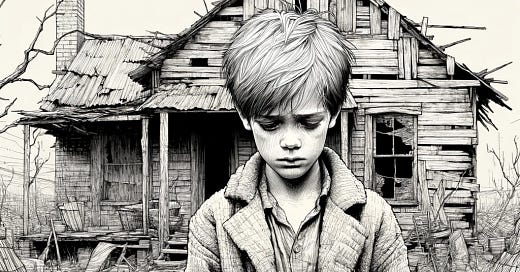I was thinking about my Skilling Me Softly readers this week as I listened to an older podcast episode of Dax Shepard’s Armchair Expert with Barbara Kingsolver, the Pulitzer Prize-winning author of Demon Copperhead. If you haven’t read the novel, I highly recommend it. It’s one of the best books I’ve read in a long time.
I wanted to share a brief excerpt from the interview because it ties in so beautifully with a prior blog I wrote for you all on novelistic empathy and practicing empathy.
Kingsolver talks about how today’s audiences prefer to seek out content from journalism and intermediary news sources. People seems to be less and less connected to fiction, especially long-form fiction. The thing we are missing, however, when we make that tradeoff is that unique way of trying on a life in a way simply not afforded through the news. That practice of empathy is ever more rarified as we lose out on our connection to novels.
Here what Kingsolver had to say:
[Fiction] is a kind of truth.
It makes me really sad to hear people say, well, they don't have time to read fiction, or it's secondary somehow to journalism. It's another kind of truth. But it's magical, as you say, because journalism informs you. It gives you information…. But fiction is the only medium we have that takes you inside of another brain.
You actually put your life down on the bedside table or whatever, and you put on the life of another person. So their kids are your kids and their worries are your worries and you feel their fear. It's even deeper than empathy. It's losing yourself inside another life. And there's nothing to replace that.
And I think it's awfully important to learn … when you're still young enough to train your brain to do that without the defensiveness of thinking about what am I reading?
Just to learn to read fiction and do that magical thing of putting fiction on when you're young enough that your brain, I think, still has the plasticity to enjoy it. ‘Cause I'm afraid that if you don't—like a second language—it's harder to learn that process later on.
….
I'm really interested in the human condition as we were for 300,000 years before this little blip of history where we began getting all our information, not from people, but from an intermediate source. We evolved as social animals. We evolved to receive information from people. We also evolved to be very quick to judge in friend or foe.
And so I think it's interesting that fiction is the one medium of gaining information that kind of replicates the human experience. Getting the experience from another person. And the advantage is that we can get that information from someone who's not in our family or our group but from a stranger who lives on another side of the world.
It's a way that we can experience the other without that defensive otherness—that feeling that someone has just touched you on the shoulder and said, yeah, me, too. Well, as they say, it's windows, and it's mirrors. Both are really important to see yourself and to see somebody that you'll never be. Someone who's a different gender or so different that the only way you can really experience their reality is through a novel.
Have a wonderful rest of the week! And I hope that this weekend, you have the opportunity to crack open a novel and revel in that experience of otherness—to be somebody that you’ll never be, which is even “deeper than empathy.”
And in case you missed the earlier post alluded to, click here:





